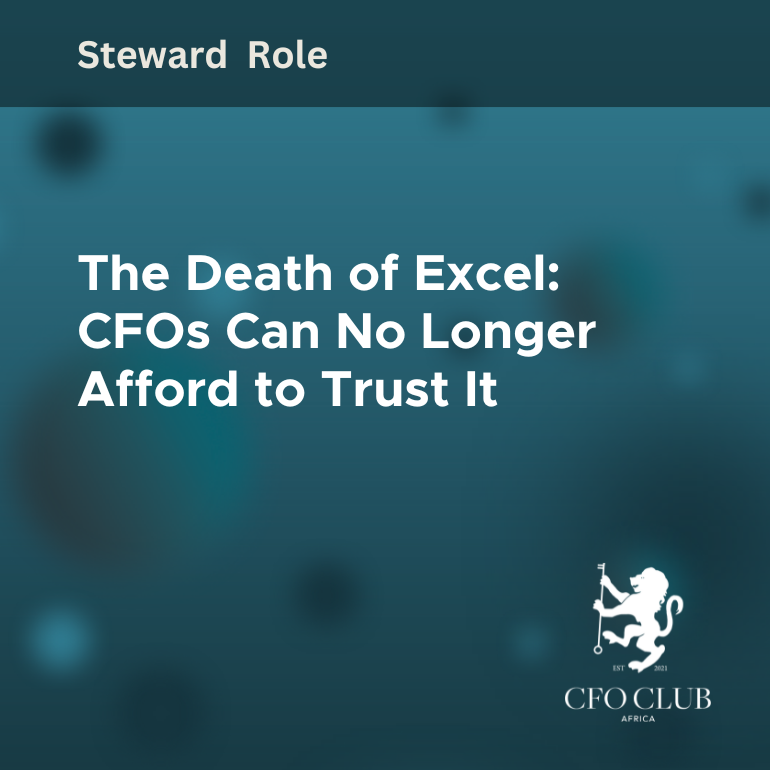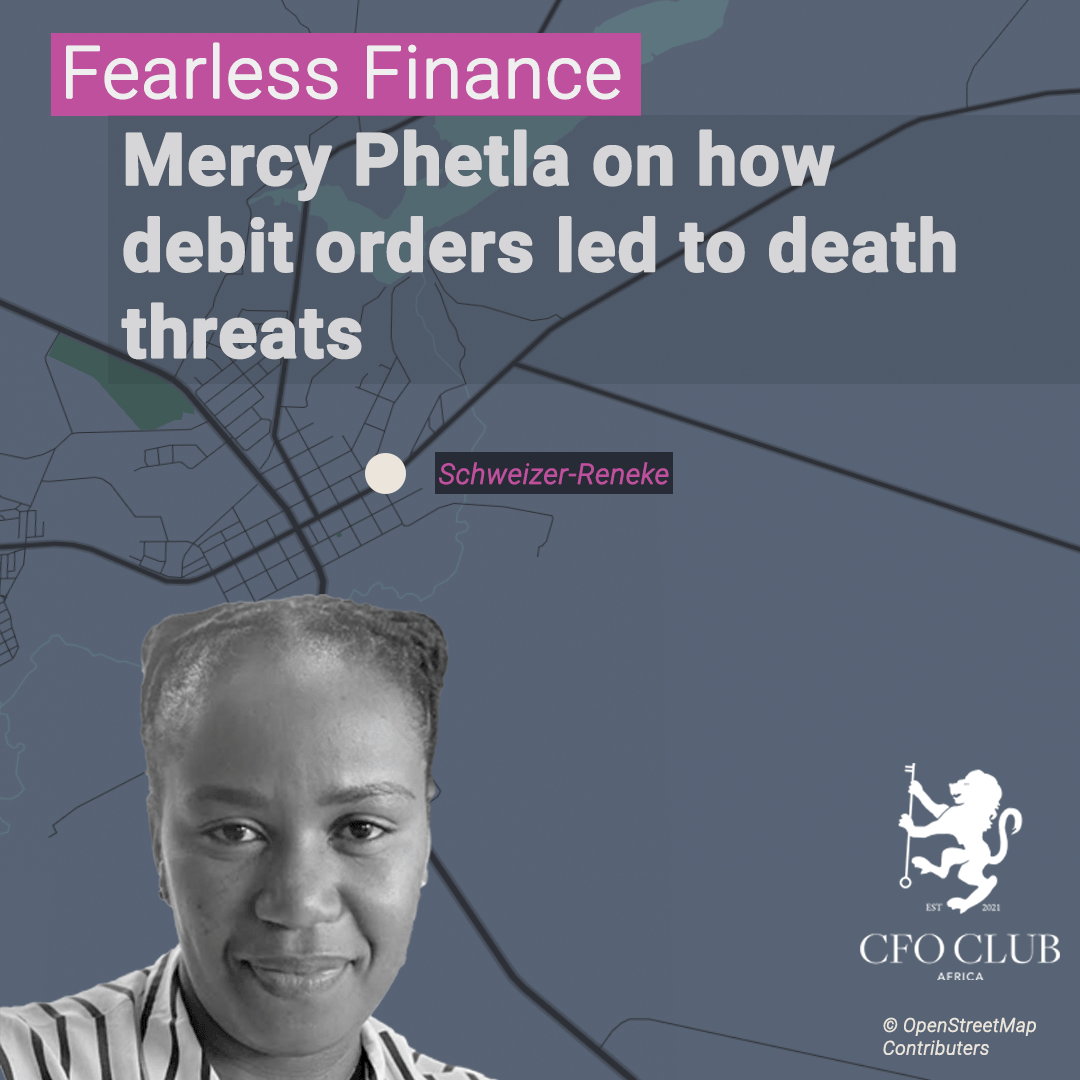The Death of Excel: CFOs Can No Longer Afford to Trust It
Finance leaders today find themselves under relentless pressure to deliver more accurate reporting, faster decision-making, and stronger risk management than ever before. At the heart of this challenge lies one essential truth: the credibility of the finance function depends on its ability to deliver consistent, transparent, and reliable numbers that business leaders and stakeholders can trust.
This is no longer possible with fragmented systems, siloed teams, and manual workarounds. Instead, CFOs are moving towards unified data platforms, automated reporting processes, and long-term planning tools that not only protect financial integrity but also strengthen organisational resilience. The shift is as much about safeguarding the organisation as it is about setting finance up as a trusted partner in shaping the future.
The Value of a Unified Data Platform
A finance team’s reputation rests on its ability to provide one version of the truth. Yet in many organisations, data lives across multiple ERPs, spreadsheets, and disconnected reporting tools. Each department maintains its own processes, creating duplication and inconsistencies that erode trust in the numbers.
A unified data platform solves this challenge by consolidating inputs from multiple systems into a single, authoritative source. For CFOs, this is more than just a technology upgrade. It is a foundation for better governance. When data is centralised, errors decrease, audit trails strengthen, and the risk of compliance breaches is reduced.
Consider the boardroom scenario. Instead of debating whose spreadsheet is correct, leaders can focus on what the numbers mean for strategy. For CFOs, this is a powerful position that enables them to protect the integrity of financial reporting while elevating their role as a trusted advisor.
But the benefits extend beyond compliance. Unified platforms also enable faster closes, real-time monitoring of performance, and deeper insights into emerging risks. Whether it is an unexpected market shift or a sudden liquidity challenge, CFOs can act quickly with confidence in the underlying numbers.
Overcoming the Risks of Fragmentation
Fragmentation is one of the most persistent barriers to finance effectiveness. Multiple legacy systems, siloed teams, and inconsistent reporting templates create friction across the organisation. The result is not only inefficiency but also real financial risk.
When teams spend more time reconciling data than analysing it, opportunities for error multiply. Manual adjustments in spreadsheets may seem minor, but they introduce weaknesses that can escalate into misstatements, audit findings, or regulatory penalties. Even when errors do not occur, the constant firefighting takes a toll on the finance team’s capacity and morale.
For CFOs, the responsibility is clear. Reducing fragmentation is not optional, it is essential. By standardising processes, integrating systems, and enforcing a culture of one truth, finance leaders reduce risks while unlocking time for higher-value work.
Moreover, overcoming fragmentation is not simply a finance issue. It directly affects the organisation’s ability to respond to stakeholders with speed and accuracy. Investors, regulators, and customers all demand transparency, and any hint of inconsistency undermines confidence. By leading the charge on integration, CFOs demonstrate their role as protectors of the company’s reputation.
The Power of Automation in Reporting
Few areas of finance have been as transformed by technology as reporting. Historically, the process of compiling financial statements, board packs, and management reports involved countless manual steps: extracting data, reconciling inconsistencies, applying adjustments, and formatting presentations.
Automation has rewritten this playbook. Today, forward-looking finance teams can generate near-complete financial statements at the click of a button, with built-in checks ensuring consistency and accuracy. Audit readiness improves dramatically, as every adjustment and approval is logged and traceable.
The benefits extend beyond accuracy. Automated reporting frees finance professionals from repetitive tasks, allowing them to focus on analysis and insight. Instead of spending long nights reconciling trial balances, teams can explore what the numbers mean for capital allocation, risk exposure, and growth opportunities.
For CFOs, automation also enhances resilience. In a world of shrinking reporting deadlines and growing regulatory complexity, manual processes are simply unsustainable. Automation provides the scalability required to meet new demands without burning out the team. And perhaps most importantly, it signals to both internal and external stakeholders that the finance function is fit for the modern age.
Long-Term Integrity in Financial Planning
While short-term reporting accuracy is critical, true financial stewardship requires an equally strong commitment to long-term planning. Some industries such as mining, infrastructure, and insurance operate with planning horizons that stretch decades, even centuries. For these organisations, the ability to forecast with integrity is not just a competitive advantage, it is a matter of survival.
Traditional planning tools often fail under such demands. They are designed for quarterly or annual cycles, not for the complex, multi-decade scenarios that certain sectors require. This creates a risk: when tools cannot keep pace, analysts are forced into workarounds, which again introduce errors and undermine trust.
Forward-thinking CFOs are addressing this by investing in planning platforms that can extend beyond the usual horizons. These systems allow for scenario modelling over 50 or even 100 years, factoring in everything from commodity cycles to environmental regulations. The result is a more resilient organisation, prepared not just for the next quarter but for the next generation.
But long-term planning integrity also requires discipline. CFOs must resist the temptation to overpromise what technology alone can deliver. The most successful long-range planning initiatives combine robust systems with strong governance, ensuring that assumptions are realistic, data inputs are validated, and outcomes are regularly stress-tested.
Building Trust Through Financial Integrity
At its core, the move towards unified platforms, integrated systems, automation, and long-term planning is about one thing: trust. Trust that the numbers are accurate. Trust that the processes are reliable. Trust that the finance team can deliver insights that support bold decisions without exposing the organisation to risk.
This trust is not built overnight. It is earned through a consistent track record of reliable reporting, transparent processes, and proactive risk management. For CFOs, the mandate is clear: protect the integrity of the financial system while continuously modernising its capabilities.
Stakeholders, whether they are investors, regulators, employees, or customers, are increasingly unforgiving of missteps. A single reporting error can undermine years of credibility. By investing in systems and processes that reduce these risks, CFOs not only safeguard their organisations but also elevate their own standing as leaders of trust.
Practical Steps for CFOs
For finance leaders considering how to strengthen their reporting integrity, several practical actions stand out:
1. Audit your data landscape. Identify where fragmentation exists, where manual processes dominate, and where risks are concentrated.
2. Prioritise integration. Focus first on unifying core financial data across subsidiaries, regions, and systems.
3. Invest in automation. Start with reporting processes that consume the most time and introduce the greatest risk of error.
4. Design for the long term. Ensure that planning systems are robust enough to handle the unique horizon of your industry.
5. Strengthen governance. Build processes that validate inputs, monitor assumptions, and reinforce accountability.
By approaching the challenge in this structured way, CFOs can create a finance function that is not only efficient but also resilient, credible, and trusted.
Looking Ahead
The finance function is at a crossroads. The traditional methods that served well for decades, spreadsheets, manual reconciliations, and siloed systems, are no longer adequate in a world that demands speed, accuracy, and foresight. CFOs who recognise this and invest in unified platforms, automation, and long-term planning are not just modernising operations. They are safeguarding the very trust that underpins the financial system.
The future of finance will belong to those who can guarantee accuracy while delivering insight. And for CFOs, the opportunity is clear: to lead this transformation and ensure that the organisation is equipped with both the tools and the trust to thrive in a rapidly changing world.





